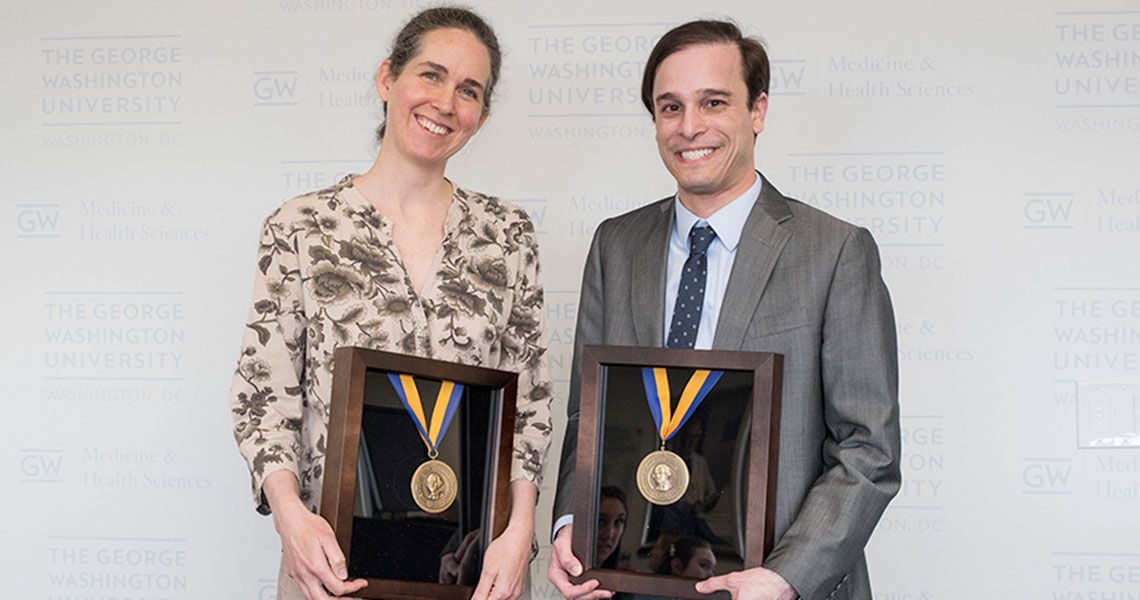Educators play myriad roles in students’ lives – teacher, mentor, role model – and their lessons can last far beyond the classroom.
“It’s been said that education isn’t the filling of the pail, but the lighting of the fire,” said Richard Simons, MD, senior associate dean for MD Programs and professor of medicine at the George Washington University School of Medicine and Health Sciences (SMHS). “Our best teachers don’t just deliver content; they are the spark that ignites that special fire in our students who then go on to great things.”
Two of those top-notch teachers, Scott Cohen, MD, associate professor of medicine at SMHS, and Aviva Ellenstein, MD, PhD, assistant professor of neurology at SMHS, received this year’s prestigious Distinguished Teacher Award, given annually to MD program faculty members who exhibit exceptional ability in education. The winners are determined by nominations from the faculty and selection by past recipients, who are members of the Society of Distinguished Teachers. Cohen and Ellenstein, now members of the society, were honored at a luncheon in mid-May.
Cohen, according to Alan Wasserman, MD, chair of the Department of Medicine and Eugene Meyer Professor of Medicine at SMHS, is a “star” in nephrology, a teacher who not only imparts knowledge in an innovative way, but who also makes the kidney interesting.
“This is one reason that I nominated Scott for the Distinguished Teacher Award,” Wasserman said. “The cardiologists, the gastroenterologists, they all have it easy; students love to hear about all the excitement in GI, in cardiology, they love the procedures, the feel of getting in there and doing something, but that’s not nephrology. … It’s a very cognitive, non-procedural specialty, which is hard to get recognition for – and it’s in this specialty that Scott has shown himself to be a master teacher.”
Cohen, Wasserman continued, has an innovative, creative teaching style, one which incorporates case studies and didactic sessions in a way that appeals to students and ensures their ability to grasp the material.
Like Cohen, who accepted his award from Terry Kind, MD, MPH, assistant dean of clinical education and associate professor of pediatrics at SMHS, Ellenstein has a unique approach to complex material. She employs physical demonstrations and singing, techniques that delight her students, said Henry Kaminski, MD, chair of the Department of Neurology and Meta Amalia Neumann Professor of Neurology at SMHS.
“‘She is an amazing instructor … helping me remember critical information;’ ‘best professor at GW,’” Kaminski said, quoting some of Ellenstein’s students.
For Ellenstein, teaching at GW is akin to the Japanese concept of “ikigai,” or the highest level attainment of purpose.
“It integrates what you love, what you’re good at, what the world needs, and what you can get paid for,” said Ellenstein before accepting her award from David Leitenberg, MD, PhD, associate professor of microbiology, immunology, and tropical medicine at SMHS. “That’s the sense that I have here, within this community of educators and within our student body.”



